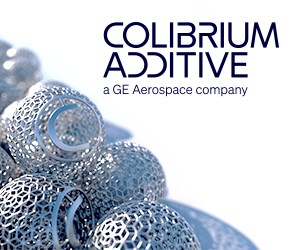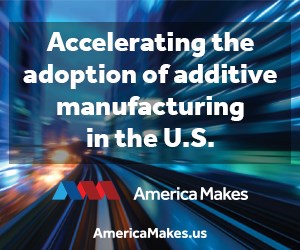AddUp Solutions, Uniformity Labs Collaborate on Titanium Alloy Additive Manufacturing
The partnership is targeting regulated health care and aerospace production using metal additive manufacturing technologies.
Global metal additive manufacturing (AM) OEM AddUp Solutions and engineered materials company Uniformity Labs are working together to maximize the productivity of Uniformity’s Ti64 Grade 23 titanium alloy using the AddUp FormUp350 laser powder bed fusion (LPBF) printer. The companies say this will lead to a partnership targeting regulated health care and aerospace production using metal AM technologies.
The partnership’s goal is to jointly market Uniformity Ti64 Grade 23 as an advanced material option on the FormUp350 to the combined customer base of AddUp and Uniformity.
“We’re excited about the potential of this collaboration,” says Adam Hopkins, Uniformity CEO. “The advanced features of the FormUp 350 and the optimized material properties of our ultra-low porosity Ti64 Grade 23 powder produce the highest quality printed alloy ideal for medical and other high-performance applications such as aerospace and energy. Ti64 is the starting point as we will look to verify other materials on the FormUp350 platform with AddUp.”
Developed by an in-house team of materials scientists and 3D printing innovators, Uniformity Ti64 is said to exhibit best-in-class mechanical performance, surface roughness and greatly improved throughput. The partners say it can increase part production by as much as 100% or more compared to the printing of other Ti64 alloys with equivalent mechanical properties.
“Uniformity Lab’s metal powders combined with AddUp’s unique roller demonstrate the ability to unlock applications where demanding surface finish and mechanical requirements combined with high levels of productivity are critical,” says Rush LaSelle, CEO AddUp. “Initial testing of Ti64 Grade 23 on the FormUp350 exhibited increased machine productivity, helping our customers to justify applications which to date may have been out of reach. Our engineering teams continue to collaborate in qualifying Ti64 Grade 23 medical applications and have already begun planning for additional materials to more broadly serve AddUp customers in health care and other high-value markets.”
Launched in 2021, AddUp says the FormUp 350 PBF machine is modular and scalable to provide the highest productivity while ensuring user safety. The printer has up to four 500 W lasers, a bidirectional coating system with 40% faster powder spreading and 160-plus accessible parameters, making the system an open platform.
The printer includes an autonomous powder module, powder storage, machine feeding and unfused powder recovering and sieving, enabling operators to work in complete safety, having zero contact with the powder. The company says its roller technology achieves a 20% higher density of the powder bed, enabling improved surface finish, extreme unsupported overhangs and a fine feature resolution.
Related Content
-
Multimaterial 3D Printing Enables Solid State Batteries
By combining different 3D printing processes and materials in a single layer, Sakuu’s Kavian platform can produce batteries for electric vehicles and other applications with twice the energy density and greater safety than traditional lithium-ion solutions.
-
At General Atomics, Do Unmanned Aerial Systems Reveal the Future of Aircraft Manufacturing?
The maker of the Predator and SkyGuardian remote aircraft can implement additive manufacturing more rapidly and widely than the makers of other types of planes. The role of 3D printing in current and future UAS components hints at how far AM can go to save cost and time in aircraft production and design.
-
3D Printing with Plastic Pellets – What You Need to Know
A few 3D printers today are capable of working directly with resin pellets for feedstock. That brings extreme flexibility in material options, but also requires greater knowledge of how to best process any given resin. Here’s how FGF machine maker JuggerBot 3D addresses both the printing technology and the process know-how.



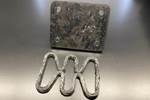
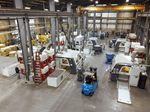

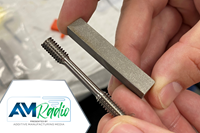
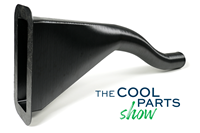

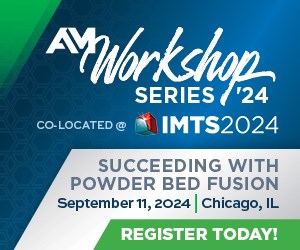
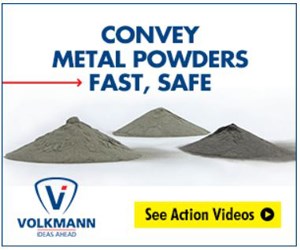

.png;maxWidth=300;quality=90)

